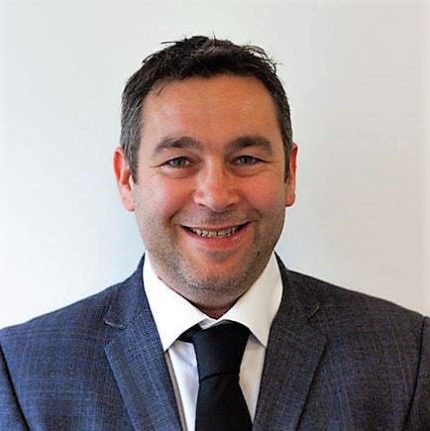University sport often makes itself a target for criticism.
It’s not uncommon for newspapers to carry a story about the latest testosterone fuelled initiation ceremonies, or about how pack mentality and alcohol combine to result in something unpleasant. But what if we were able to buck the trend?
In an ideal world, we would showcase university sport as something that was welcoming and accessible to everyone, and we would be confident to welcome the wider community to university sporting events. We could also celebrate the inclusion, wellbeing and community aspects of sport.

Getting civic
UPP’s Truly Civic report is still echoing for most of us, and Lord Kerslake’s foreward stated that universities are “hugely important to the economic, social, cultural and environmental wellbeing of the places in which they are located”. Shouldn’t we therefore want to put the community at the heart of student sport? And even without the university context, students’ unions as charities have a duty to promote and explain their public benefit.
“Roses” is similar to many university sports varsities – ours, between York and Lancaster has been running for some 54 years growing to cover over 140 fixtures in 3 days. From underwater hockey to snow sports, pole fitness to dodgeball and plenty more between the sheer range of sports and fixtures makes it the largest inter university sports varsity in Europe. All run by students and their students’ union.
So with some additional university funding for Roses2019, the first time the university had contributed some funding to the event, we set about trying to open up the tournament in new ways, creating different messages for a wider community audience:
- For many years we have had a strong brand to promote Roses but this year we set about using that brand to promote students and public benefit more deeply and to push that brand off campus. Our Roses Live event web site included details on the history of the tournament, charity partnerships and free events alongside the usual score updates and fixtures guide. Work with local media including Minster FM, York Press, Little Viking’s (an organisation promoting York to kids and families) and the City tourist board Visit York promoting the tournament to residents widely inviting them to come and join us on the campus. We even managed to secure local born actor Mark Addy (AKA King Robert Baratheon) to join us at the opening ceremony.
- Partnerships with charities carefully chosen by our sports teams and York Sport (student) committee were showcased and promoted. Tie ups with Student Minds and Beat were established to raise money but also to invite people to sign up to Beats petition calling for eating disorder training for medical students and junior doctors and to share wellbeing messages for others. We captured and shared student testimony about why these charities were important to them and about their lived experiences. Case studies showed the link between sport and mental health problems such as this blog from one of our students who suffers from an eating disorder or this interview with a student who used student dance to deal with PTSD. This video from Rose Anne Evans, one of our Student Beat Ambassadors, is particularly powerful. Sharing lived student experience is an increasingly important element of our student policy and representation work but embedding this within a sports tournament was new for us and proved to be very powerful.
- Sports testimony commonly focuses on characteristics such as leadership, personal strength and resilience. While these are all valuable attributes which sport can contribute to, we choose to focus on some of the lesser recognised characteristics of sport – how it can grow confidence, support personal development, improve well-being and grow peer support networks
- We created a mindfulness space for the weekend of the tournament, ‘Keeping it Rosey’, a garden of Roses where visitors could sit, relax and reflect on their own health. The strong altruistic ethos was furthered with our own RAG team getting involved throughout the weekend.

- A strong family focus included art installations, student performances, a free children’s festival with give it a go sports (run in conjunction with City clubs such as York City Knights, York City football club and City York Hockey Club) bouncy castles, face painting and more. Street food vans, live music and performance from student groups, a free outdoor cinema screening in conjunction with our student cinema society, a club night with student DJ’s, a fireworks festival and more.
- The opening festival with free tickets given away to local residents and families who joined thousands of students, included performances from Tamil society, Samba Society and more. We were aware that bringing in family to engage with the event could change the environment and allow us the potential to inspire young people around both sport and university. This created new partnerships in the City but is also a gentle way to nudge the culture of the event to be different.
- We opened the tournament with women’s netball as our opening fixture ensuring that we gave women’s sport the profile this year which male teams had perhaps monopolised previously. We started to shift our focus onto netball early arranging for Ama Agbeze who captained England women’s netball to Olympic gold, to come and talk about her experiences of being a BAME female elite sportswoman to some of our teams as they started preparing for Roses. Similarly the event closed with women’s rugby as the final fixture.
- Our annual ‘Respect the Rose’ campaign gets sports team and people to talk about and inclusivity and respect. They make pledges designed to ensure the conduct of the tournament on and off the pitch showcases the right behaviours and spirit.

- We recruited a team of over 50 student volunteers who supported the whole event, split between Roses charity champions and Roses Game makers.
- Student media, long an important feature of York student life, stepped it up a gear and covered every inch of the campus throughout the tournament and for months before. They helped build the hype, bring an impressive professionalism to the media content and to share this as widely as possible. Student media lives streams were broadcast across all campus venues, onto a big screen at the heart of campus and more widely using the usual social media and Roses Live web platform.
- Students were actively involved at every level. As student athletes, volunteers, student staff supporting the delivery of one of our most complex venue operations, in the organising committee, the student societies who performed or the student media teams. They all shared their expertise and passion in a way which celebrated their contribution to our community. They all have experiences which we hope will enrichen their cv’s and friendships and memories that will significantly outlive their time at York.
The best of us
In simple terms we showcased the best of York, the best of students and the best of sport. Our students’ union values are to be for, with and by students, to be brave and to be inclusive and we think we delivered a tournament which showcased exactly these attributes and was all the better for it.
We showed that sport can be transformative in a positive way and we created a new social context for student sport.York was one of the institutions that choose to sign up to the civic university agreement earlier this year. We hope that the 2019 Roses Tournament might be an example of civic engagement and public good that will be recognised and celebrated across York without prompting as a result of the way we approached this years event.
Oh, we almost forgot to mention, York won 205.5 – 143.5.





















Sounds great. When is the University going to lift its ban on the student press (Vision) so that student journalists can report again on goings on at York?
Correction – York does still have a student newspaper (Nouse) that covered Roses but used to have two. Still, a good article.